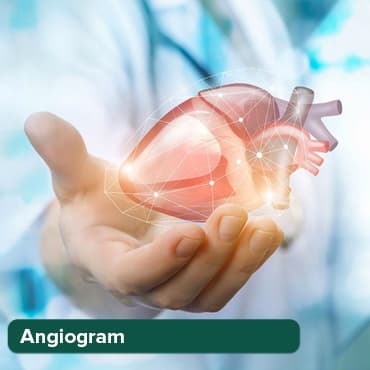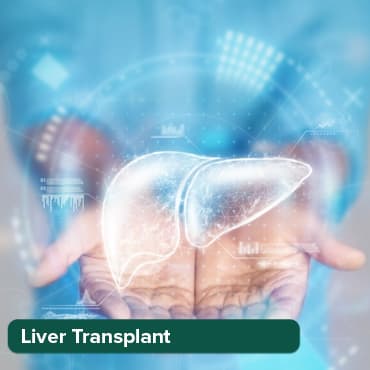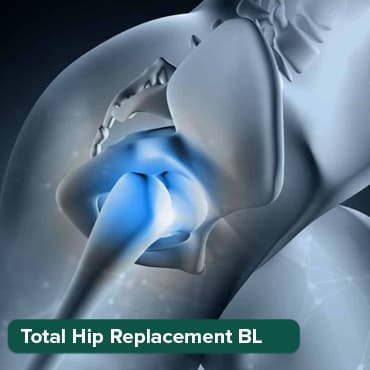
የጉበት ካንሰር እና ንቅለ ተከላዎች፡ ሕይወት አድን ጥምረት
16 Sep, 2023
 Healthtrip ቡድን
Healthtrip ቡድንIntroduction:
Liver cancer is a formidable adversary, claiming the lives of thousands of people every year. However, there is a glimmer of hope on the horizon in the form of liver transplantation. This medical procedure, which involves replacing a cancerous liver with a healthy one, has the potential to offer a second chance at life for those battling this deadly disease. In this blog, we will explore the relationship between liver cancer and transplants, shedding light on the lifesaving combination that has given hope to many.
A. Understanding Liver Cancer
a. The Nature of Liver Cancer
Before delving into the role of liver transplantation in treating liver cancer, it's essential to understand the disease itself. Liver cancer, also known as hepatocellular carcinoma (HCC), is a malignancy that originates in the liver cells.

b. Silent Progression and Early Detection Challenges
It is often associated with chronic liver diseases such as cirrhosis, hepatitis B, and hepatitis C. Liver cancer typically progresses silently, with symptoms appearing at advanced stages, making early detection challenging.
B. The Role of Liver Transplantation
Liver transplantation has emerged as a critical treatment option for individuals with advanced liver cancer. Here's how it works:
1. Selecting Suitable Candidates
Not every patient with liver cancer is a suitable candidate for transplantation. To be considered, the cancer must meet specific criteria, including size and number of tumors and the absence of tumor invasion into blood vessels or other organs. Additionally, the patient's overall health and the severity of their liver disease are assessed.
2. Pre-Transplant Therapy:
Some patients undergo treatments like local ablation (destroying the tumor with heat or cold) or transarterial chemoembolization (delivering chemotherapy directly to the tumor) to control tumor growth and reduce the risk of cancer recurrence post-transplant.
3. Transplant Surgery:
When a patient is deemed eligible, a suitable donor liver is obtained, and the transplant surgery is performed. The cancerous liver is removed, and the healthy donor liver is implanted in its place.
4. Post-Transplant Care:
After the surgery, patients require lifelong immunosuppressive medications to prevent organ rejection. They also undergo regular follow-up examinations and imaging to monitor for cancer recurrence.
በ ውስጥ በጣም ታዋቂ ሂደቶች ሕንድ
የአትሪያል ሴፕታል ጉድለት (AS
እስከ 80% ቅናሽ
90% ደረጃ ተሰጥቶታል።
አጥጋቢ

ኮርኒሪ አንጎግራም እና ፐርኩታኔ
እስከ 80% ቅናሽ
90% ደረጃ ተሰጥቶታል።
አጥጋቢ

ኮርኒሪ አንጎግራም CAG/ CAG
እስከ 80% ቅናሽ
90% ደረጃ ተሰጥቶታል።
አጥጋቢ

የጉበት ትራንስፕላንት
እስከ 80% ቅናሽ
90% ደረጃ ተሰጥቶታል።
አጥጋቢ

ጠቅላላ የሂፕ ምትክ-ቢ/ሊ
እስከ 80% ቅናሽ
90% ደረጃ ተሰጥቶታል።
አጥጋቢ

C. Benefits of Liver Transplants for Liver Cancer Patients
1. Improved Survival Rates:
Liver transplantation offers the best chance of long-term survival for patients with early-stage HCC compared to other treatments.
2. Elimination of Cancer:
Removing the cancerous liver eliminates the tumor, reducing the risk of recurrence compared to treatments that leave the diseased liver in place.
3. Improved Quality of Life:
Post-transplant, patients can experience an improved quality of life, as they are no longer burdened by the debilitating effects of liver cancer and cirrhosis.
Reduced Cancer-Related Symptoms: Symptoms such as abdominal pain, jaundice, and fatigue often improve or disappear entirely after a successful transplant.
D. Challenges and Considerations
While liver transplantation for liver cancer is a beacon of hope, it comes with its own set of challenges and considerations:
1. Limited Donor Organs:
The availability of donor organs is limited, leading to long waiting lists for transplant candidates.
2. Eligibility Criteria:
Strict eligibility criteria mean that not all liver cancer patients can benefit from transplantation.
3. Immunosuppression:
Lifelong immunosuppressive medications increase the risk of infections and other complications.
4. Cancer Recurrence:
While transplantation reduces the risk of recurrence, it is not entirely eliminated, and careful monitoring is essential.
Certainly, let's explore the topic of liver transplantation for liver cancer in more detail, including recent advancements, the importance of early detection, and the need for increased awareness.
E. Advancements in Liver Transplantation for Liver Cancer
Over the years, significant advancements in surgical techniques, immunosuppressive medications, and post-transplant care have greatly improved the outcomes of liver transplantation for liver cancer patients. Some notable developments include:
1. Living Donor Transplants:
In cases where deceased donor organs are scarce, living donor liver transplantation has emerged as a viable option. A healthy individual donates a portion of their liver to the patient, and both the donor and recipient livers regenerate, allowing for successful transplantation with reduced waiting times.
2. Precision Medicine:
Advances in precision medicine have led to tailored treatment plans for liver cancer patients. Molecular profiling of tumors helps oncologists choose the most effective therapies, including targeted therapies and immunotherapies, before and after transplantation.
3. Post-Transplant Surveillance:
Regular surveillance through imaging techniques such as MRI and CT scans, along with tumor marker testing, helps detect cancer recurrence at an early, treatable stage. Timely intervention is crucial to improving long-term survival rates.
F. Importance of Early Detection
Early detection of liver cancer plays a pivotal role in the success of transplantation. Unfortunately, liver cancer is often asymptomatic in its initial stages, making routine screenings essential, especially for individuals at higher risk due to underlying liver diseases. Common risk factors for liver cancer include:
- Chronic hepatitis B or C infections.
- Cirrhosis, often caused by excessive alcohol consumption or non-alcoholic fatty liver disease (NAFLD).
- Obesity and metabolic disorders.
- Exposure to aflatoxins or other environmental toxins.
Regular screenings can detect liver cancer at an early, potentially curable stage when transplantation is most effective. Patients diagnosed at advanced stages may not be eligible for transplantation and may have limited treatment options.
G. The Need for Increased Awareness
Increasing awareness about liver cancer and the potential benefits of liver transplantation is critical. This includes educating the public, healthcare providers, and at-risk individuals about:
- The risk factors associated with liver cancer.
- The importance of regular check-ups and screenings for those at risk.
- Available treatment options, including transplantation, for eligible patients.
- The role of organ donation and the need for more registered organ donors to address the shortage of donor livers.
Government initiatives, healthcare organizations, and advocacy groups can work together to promote liver cancer awareness campaigns and organ donation drives, ultimately saving lives and reducing the burden of this devastating disease.
Conclusion
In conclusion, liver transplantation for liver cancer represents a powerful treatment option that can offer hope and extended life to individuals facing this challenging diagnosis. With ongoing advancements in medical science, early detection efforts, and increased awareness, we can continue to improve the outcomes and accessibility of this lifesaving procedure for those in need.
የጤንነት ሕክምናዎች
ለራስህ ዘና ለማለት ጊዜ ስጥ
በጣም ዝቅተኛ ዋጋዎች የተረጋገጠ!

በጣም ዝቅተኛ ዋጋዎች የተረጋገጠ!





